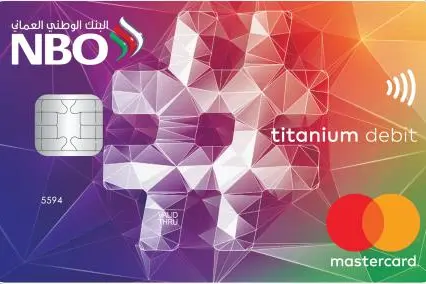PHOTO
Muscat – National Bank of Oman (NBO) is offering Mastercard holders in Oman the possibility to pay contactlessly at over 5,000 terminals across the Sultanate, marking a milestone for the country’s payment infrastructure. A first in Oman, NBO terminals will accept all contactless Mastercards, issued both in Oman and abroad.
Contactless payments are already widely used in the rest of the world and are steadily overtaking Chip and PIN transactions in terms of volume. All NBO payment terminals will allow local and international contactless Mastercard holders to simply tap or wave their card on the terminal instead of swiping or entering a PIN, offering a faster, easier and more convenient payment solution.
“With contactless payments, you just tap and go, making it a secure and great alternative to cash and Chip and PIN transactions,” said Abdul Karim Al Hinai, Head of Alternative Channels at NBO. “At NBO, we are committed to supporting Oman on its journey of digitization and the way in which we manage our finances plays an important part. Contactless payments are the future and we are excited to be the first to introduce leading edge technology that enables people to lead more hassle-free lives.”
Contactless payments can be made for goods and services up to 10 Omani Rials, making it ideal for small purchases on the move such as a cup of coffee, magazines and basic everyday necessities. As an added security and authentication feature, customers will be asked to enter their PIN for any purchases over OMR 10. For retailers, contactless transactions offer great added value as queuing times for customers are significantly reduced.
Mastercards with the contactless logo of four bold lines making a wave can be used at any of NBO’s new contactless terminals including Muscat International Airport. Furthermore, NBO customers with Youth Debit Cards and Badeel prepaid cards can also now use them contactlessly at these points of sale. All new debit and credit cards issued by NBO will soon be contactless enabled.
-Ends-
About National Bank of Oman:
NBO, the first local commercial bank in the Sultanate of Oman, was founded in 1973 and is today one of the leading banks in Oman. The Bank serves its customers in Oman through 60 Branches, 182 ATMs and 64 CCDM/FFM as well as two Branches in U.A.E.
The Bank is committed to community improvement through its corporate citizenship programs and is an active supporter of a range of worthy causes in Oman, with emphasis on health and human services, civic, education, environment, youth, women, arts and culture.
For More Information please contact:
Sudipta Dasgupta
TRACCS
Telephone: +968 24 649-099
Mobile: +968 94558787
Email: Sudipta.dasgupta@traccs.net
© Press Release 2018Disclaimer: The contents of this press release was provided from an external third party provider. This website is not responsible for, and does not control, such external content. This content is provided on an “as is” and “as available” basis and has not been edited in any way. Neither this website nor our affiliates guarantee the accuracy of or endorse the views or opinions expressed in this press release.
The press release is provided for informational purposes only. The content does not provide tax, legal or investment advice or opinion regarding the suitability, value or profitability of any particular security, portfolio or investment strategy. Neither this website nor our affiliates shall be liable for any errors or inaccuracies in the content, or for any actions taken by you in reliance thereon. You expressly agree that your use of the information within this article is at your sole risk.
To the fullest extent permitted by applicable law, this website, its parent company, its subsidiaries, its affiliates and the respective shareholders, directors, officers, employees, agents, advertisers, content providers and licensors will not be liable (jointly or severally) to you for any direct, indirect, consequential, special, incidental, punitive or exemplary damages, including without limitation, lost profits, lost savings and lost revenues, whether in negligence, tort, contract or any other theory of liability, even if the parties have been advised of the possibility or could have foreseen any such damages.




















